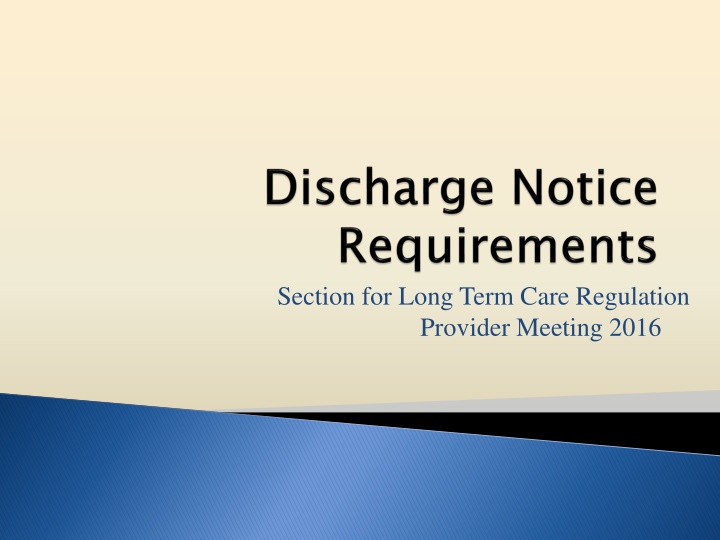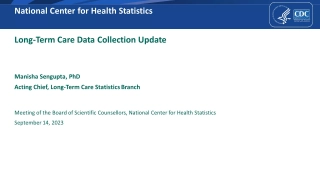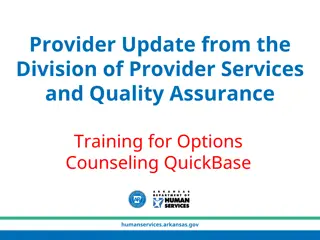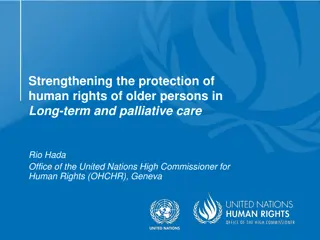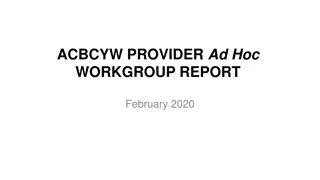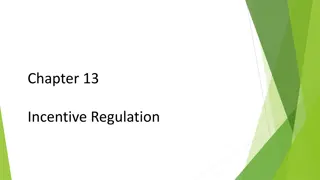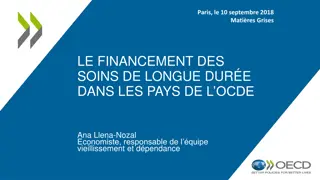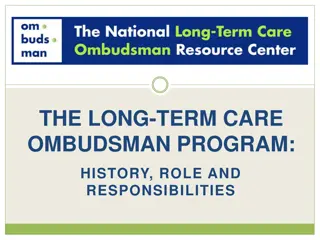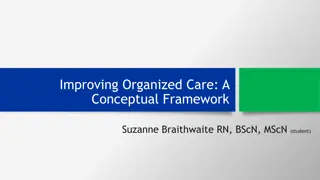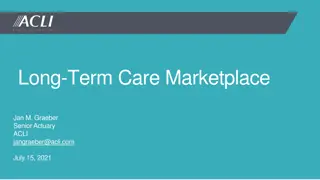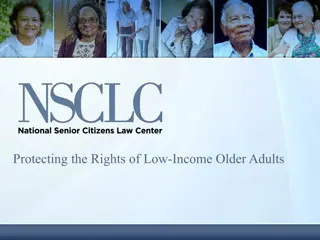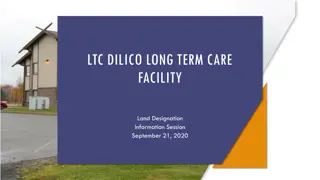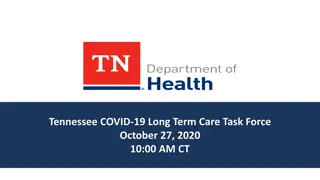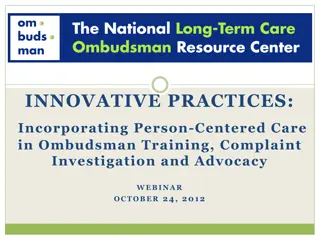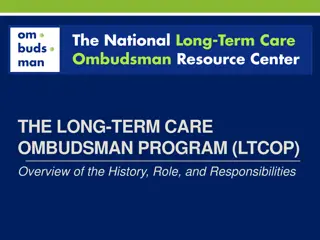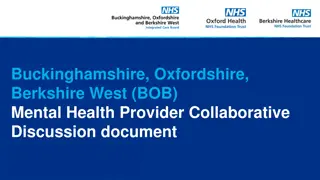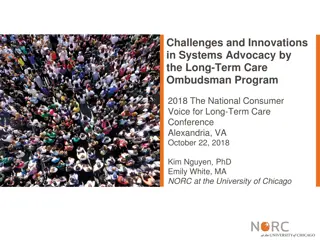Long-Term Care Regulation Provider Meeting Overview 2016
Long-term care regulation provider meeting in 2016 covered key scenarios like releasing or refusing readmission of residents, inability to meet resident needs, improved resident health, safety and health concerns, resident payment failures, and facility closure. Documentation requirements from physicians and nursing directors were emphasized for each situation.
Download Presentation

Please find below an Image/Link to download the presentation.
The content on the website is provided AS IS for your information and personal use only. It may not be sold, licensed, or shared on other websites without obtaining consent from the author.If you encounter any issues during the download, it is possible that the publisher has removed the file from their server.
You are allowed to download the files provided on this website for personal or commercial use, subject to the condition that they are used lawfully. All files are the property of their respective owners.
The content on the website is provided AS IS for your information and personal use only. It may not be sold, licensed, or shared on other websites without obtaining consent from the author.
E N D
Presentation Transcript
Section for Long Term Care Regulation Provider Meeting 2016
Releasing from a facility or refusing to readmit under circumstances where the resident or a legally authorized representative of the resident has not consented or agreed with the move or decision to refuse readmittance. refusing to readmit a resident from a community setting
The residents welfare and the residents needs cannot be met by the facility Requires documentation in the clinical record from the resident s personal physician Requires documentation in the clinical record from the administrator or facility director of nursing
The residents health has improved sufficiently so the resident no longer needs the services provided by the facility Requires documentation in the clinical record from the resident s personal physician Requires documentation in the clinical record from the administrator or facility director of nursing
The safety of individuals in the facility is endangered Requires documentation in the clinical record from the administrator or facility director of nursing
The health of individuals in the facility is endangered Requires documentation from a physician Requires documentation in the clinical record from the administrator or facility director of nursing
The resident has failed, after reasonable and appropriate notice, to pay for (or have paid under Medicare or Medicaid) a stay at the facility Requires documentation in the clinical record from the administrator or facility director of nursing
The facility ceases to operate Requires documentation in the clinical record from the administrator or facility director of nursing
Documentation must be recorded in detail in each affected resident s record. The recording of the reason for the discharge shall be entered into the resident s record prior to the date the resident receives notice of the discharge or prior to the time when the discharging facility decides to discharge the resident
30 day discharge Must be given no less than 30 days before the resident is to be discharged Emergency discharge Must be given as soon as practicable before discharge before the
Emergency Discharge The safety of individuals in the facility is endangered notice must contain the specific facts The health of individuals in the facility is endangered notice must contain the specific facts The resident s health has improved Immediate discharge is required because of urgent medical needs The resident has not resided in the facility for 30 days
Notice must be IN WRITING In a language and manner understood by the resident Sent to any legally authorized representative of the resident and to at least one family member If no family member, send to the regional Ombudsman
Reason for the discharge Effective date of the discharge Resident s right to appeal the discharge within 30 days of the receipt of the notice Address to which the request for hearing should be sent Attn: Administrative Hearings Unit, Division of Legal Services P.O. Box 1527, Jefferson City, MO 65102- 1527
That filing an appeal will allow a resident to remain in the facility until the hearing is held unless a hearing official finds otherwise The location to which the resident is being discharged The name, address and telephone number of the designated regional long-term care ombudsman office
For Medicare/Medicaid certified facility residents with developmental disabilities or mental illness, the mailing address and telephone number of the Missouri Protection and Advocacy Agency 925 South Country Club Drive, Jefferson City, MO 65109 573-893-3333
January 1, 2015 June 30, 2016 195 discharge hearing requests Most common reasons for dismissal due to notice not containing requirements of 19 CSR 30-82.050(4B)
No resident shall be discharged, except in the case of an emergency, unless the resident, responsible party are notified at least 30 days in advance if the discharge, and casework services or other means are utilized to assure that adequate arrangements exist for meeting the resident s needs. Class II
A resident may be discharged only for medical reasons or for his or her welfare or that of other residents, or for nonpayment for his or her stay. Class II
No resident may be discharged without full and adequate notice of his or her right to a hearing and an opportunity to be heard on the issue of whether his or her discharge is necessary. Such notice shall be given in writing the discharge except in the case of an emergency discharge and must comply with the requirements of 19 CSR 30-82.050. Class II/III in writing no less than 30 days in advance is
In emergency discharge situations the facility shall submit to the resident and his or her legal representative a written notice discharge shall be given as soon as practicable and advise the resident of the right to request an expedited hearing. Class II/III written notice of discharge. The written notice of
F201 Reasons for discharge F202 Documentation in resident s clinical record F203 Notice requirements F204 Sufficient preparation and orientation to ensure safe and orderly discharge
F205 Bed-hold policy notice upon transfer to hospital or on therapeutic leave F206 Permitting resident to return to facility in first available bed in a semi- private room after hospitalization or therapeutic leave exceeds bed-hold period
CMS has instructed states to refer any citations at F201 F206 for possible immediate imposition of remedies CMS has instructed states to be mindful of impact on resident and cite at appropriate scope and severity Nationwide workgroup for discharge notice requirements across care continuum
